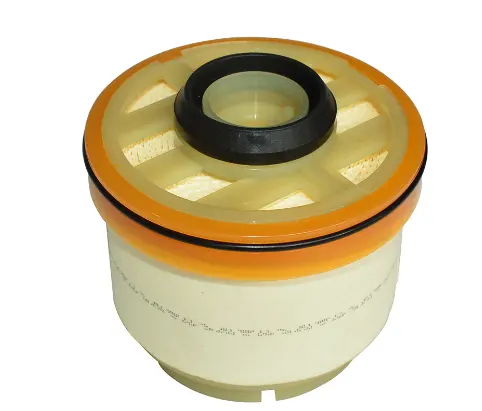Aug . 29, 2024 05:45 Back to list
OEM Air Filters for Automobiles - Quality Performance & Fit
The Importance of OEM Air Filters in Automobiles
In the automotive industry, the term OEM, or Original Equipment Manufacturer, refers to the parts that are made by the same company that produced the original components of a vehicle. Among these parts, the air filter plays a crucial role in maintaining the engine's efficiency and overall performance. This article discusses the significance of OEM air filters in automobiles, their advantages, and how they contribute to a car's longevity.
The primary function of an air filter is to prevent dirt, dust, and other contaminants from entering the engine's internal parts. A clean and efficient air filter ensures that the engine receives the appropriate amount of clean air for combustion. This is essential because a well-balanced air-fuel ratio leads to optimal engine performance, improved fuel efficiency, and reduced emissions. OEM air filters are designed specifically for the make and model of the vehicle, ensuring a perfect fit and compatibility with the engine's requirements.
The Importance of OEM Air Filters in Automobiles
Moreover, opting for OEM air filters can also help maintain the warranty on the vehicle. Many manufacturers specify that using non-OEM parts can void warranties, particularly concerning engine-related issues. By using OEM components, vehicle owners can ensure that they remain compliant with warranty requirements while maximizing their investment in maintenance.
oem air filter in automobile

Another significant advantage of OEM air filters is their impact on vehicle performance and longevity. High-quality filtration means that the engine operates more efficiently, which can lead to better fuel economy and reduced carbon footprints. Additionally, a well-maintained engine is less likely to experience issues such as misfires, reduced power, or premature wear and tear. This translates to lower long-term costs associated with repairs and part replacements.
Maintenance schedules often recommend changing air filters every 12,000 to 15,000 miles, but this can vary based on driving conditions and environment. For those who frequently traverse dusty or polluted areas, more frequent changes may be necessary. Sticking to the OEM recommendation can help ensure that the air filter functions effectively throughout its lifespan.
It’s also worth mentioning that while the price of OEM air filters may be higher than their aftermarket counterparts, the investment often pays off in terms of quality and peace of mind. In a world where consumers seek cost-effective solutions, understanding the long-term benefits of OEM parts becomes essential.
In conclusion, OEM air filters are a vital component of automobile maintenance that significantly influences engine performance, reliability, and vehicle longevity. Their design and manufacturing align perfectly with the specifications of the vehicle, ensuring optimal operation and compliance with warranty conditions. While they may come with a higher initial cost compared to aftermarket options, the benefits in quality, reliability, and peace of mind make them the preferred choice for serious car owners. By incorporating OEM air filters, drivers can contribute to a smoother driving experience and extend the lifespan of their vehicles, ultimately leading to a more sustainable and economical approach to car ownership.
-
Toyota Corolla Hatchback Cabin Air Filter – High Efficiency & Easy Installation
NewsJul.08,2025
-
Premium Canister Fuel Filter Supplier High Quality Oil Filtration Solutions
NewsJul.08,2025
-
Premium Car Filter Oil Solutions Leading Car Oil Filter Exporter Hyundai Car Oil Filter Exporters
NewsJul.08,2025
-
Buy 17x21x1 Air Filter – Improve Air Quality & HVAC Efficiency Affordable Air & Cabin Air Filter Cost
NewsJul.07,2025
-
High-Performance Filter Element Fuel – Durable, Efficient & Cost-Effective Solutions
NewsJul.07,2025
-
High-Quality Engine Filter and Cabin Filter for Superior Airflow Affordable Cabin and Engine Air Filter Cost
NewsJul.07,2025


